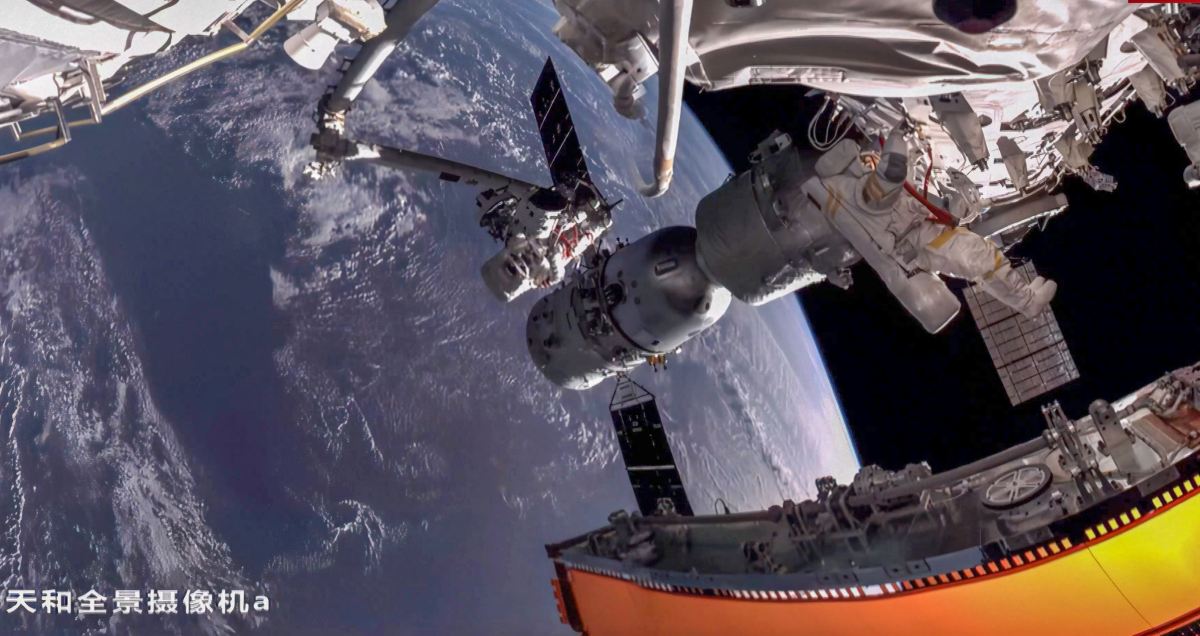HELSINKI —China’s human spaceflight agency announced the selection of 10 new astronauts Tuesday, aiming to bolster its spaceflight capabilities for future missions, including potential crewed lunar landings.
The China Manned Space Engineering Office (CMSEO) selected 10 astronauts for its fourth batch of astronauts, it announced June 11. The 10 consist of eight pilots and two payload specialists. The latter pair are China’s first astronauts from Hong Kong and Macao special administrative regions.
The selected will receive systematic training at the Astronaut Center of China (ACC). They will be eligible for flights to the Tiangong space station after two years of basic training.
China started recruiting its fourth batch of astronauts in October 2022. Candidates went through preliminary selection, re-selection, and final selection. These phases included comprehensive and in-depth clinical medical examinations, physiological and psychological tests and endurance and adaptability to the space environment tests.
CMSEO selected 14 astronauts from air force pilots in 1998 for its first spaceflight missions. Yang Liwei became the first Chinese national to reach orbit in 2023. A second selection saw an additional seven astronauts chosen in 2010, including China’s first women astronauts. China selected 18 new astronauts in a third round in 2020. These consisted of space pilots and, for the first time, flight engineers and payload specialists.
Candidates from the third round are now being added to flights to Tiangong. Tang Shengjie and Jiang Xinlin, currently aboard Tiangong as part of the Shenzhou-18 mission, are from the third selection round.
CMSEO, which operates under the People’s Liberation Army, did not reveal identities of the astronauts, nor the gender ratio of the group. The 2020 selection of 18 astronauts included just one woman. A Hongkonger woman is one of the payload specialists for the fourth batch, according to the South China Morning Post.
China’s human spaceflight activities are relatively secretive. CMSEO only reveals identities of crew members for Shenzhou missions to Tiangong via press conferences a day ahead of launch.
International astronauts, lunar training plans
CMSEO also reiterated that it is looking to send international astronauts to Tiangong.
“Astronaut selection and training system has become more mature and complete. With the deepening of international cooperation in human space flight, foreign astronauts will also participate in the selection and training and carry out Chinese space station flight missions,” the CMSEO statement said.
The agency has made several statements on foreign astronauts flying on Chinese missions but has yet to indicate a timeline or nations from which potential astronauts may come. The European Space Agency is no longer considering sending its astronauts to Tiangong, despite earlier joint trainings.
China also has its sights set further afield. The country is targeting putting a pair of astronauts on the moon before 2030. This is part of the country’s growing human spaceflight ambitions, including expanding Tiangong and a sustained lunar presence.
Huang Weifen, chief designer of the astronaut system of China’s human spaceflight program, told CCTV that ACC is focusing on the major tasks of the space station and future lunar missions.
Huang stated that geology- courses have been opened, and field training and site surveys will be conducted. Chinese astronaut Ye Guangfu participated in ESA’s underground astronaut training course CAVES in 2016. A lunar landing mission training simulator is being developed to allow relevant training to be carried out.
China’s initial crewed lunar landing plan is a short-term mission. However the country plans to establish an International Lunar Research Station (ILRS) for a more permanent presence. It is also planning to expand Tiangong with further modules, providing further opportunities for spaceflight.
